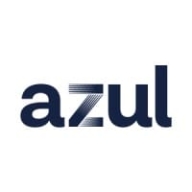

Apache Web Server and Azul Zing are competitors in server solutions. Apache is more prevalent due to its open-source flexibility and adoption, but Azul Zing is superior for high-performance Java applications.
Features: Apache Web Server offers versatility, extensive plugin support, and stability across platforms. Azul Zing provides a pauseless garbage collector, high Java application performance, and low-latency operation.
Room for Improvement: Apache could enhance its paid support and improve scalability features for large enterprises. It may also benefit from better integration with certain modern development tools. Azul Zing can work on reducing licensing costs, enhancing documentation for broader usability, and expanding support for non-Java environments.
Ease of Deployment and Customer Service: Apache benefits from community-driven support and extensive resources for ease of deployment. Customer support is varied, dependent on third-party services. Azul Zing offers specialized enterprise-level Java support, ensuring easier deployment in tech-intense environments. Its customer service is highly professional and custom-tailored.
Pricing and ROI: Apache is cost-effective as a free, open-source solution, maximizing ROI for flexible web solutions. Azul Zing requires licensing fees, justified by its specialized Java enhancements and enterprise support. The pricing reflects its value, especially for businesses focused on Java performance.

The Apache HTTP Server Project was founded in 1995 by a group of webmasters, known as The Apache Group, with the aim of developing robust, richly-featured, freely-available and commercial-standard Web (HTTP) server source code. The result was Apache Web Server or Apache HTTP Server, which is an open-source public-domain web server.
This collaborative project has been enhanced ever since with contributions from the core development team and other volunteers situated all over the globe. Also, hundreds of users of this open-source web server have contributed code, ideas, and documentation. The project falls under The Apache Software Foundation, which manages many open-source projects.
Zing is an advanced Java runtime (JVM) designed for enterprise workloads that require any combination of large memory, high transaction rates, low latency, consistent response times or high sustained throughput. Zing eliminates Java garbage collection as a factor in production, and conforms to the Java SE standard for Java SE 8, 7, and 6.
We monitor all Application Infrastructure reviews to prevent fraudulent reviews and keep review quality high. We do not post reviews by company employees or direct competitors. We validate each review for authenticity via cross-reference with LinkedIn, and personal follow-up with the reviewer when necessary.